Text
Questions about applying to law school?
Hey y’all! Seems like we’re deep into application season, so I’m planning on making a post this coming week about applying to law school. Reply or shoot me a message if you have anything you’d like me to cover!
36 notes
·
View notes
Photo
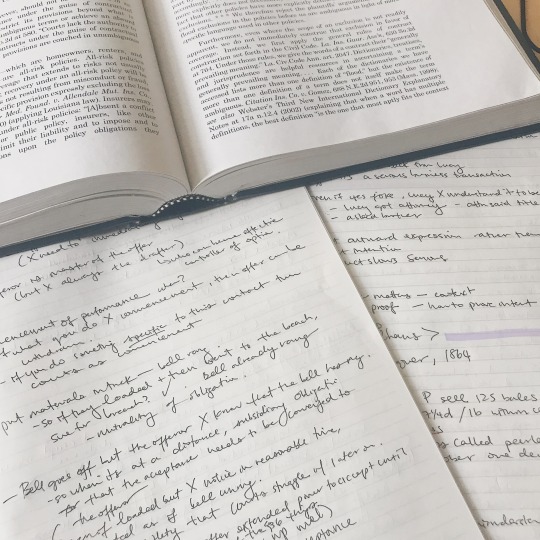
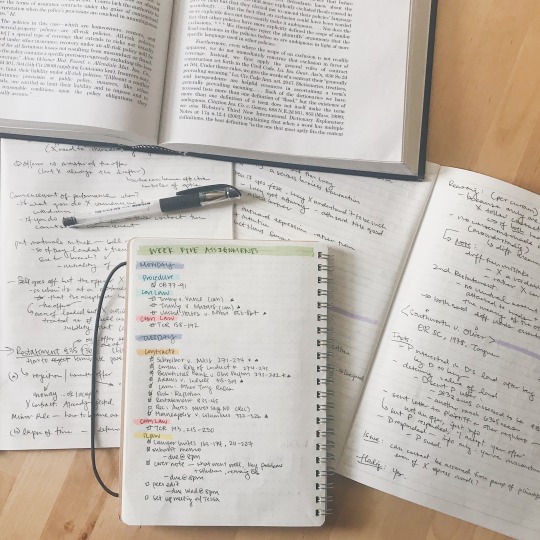
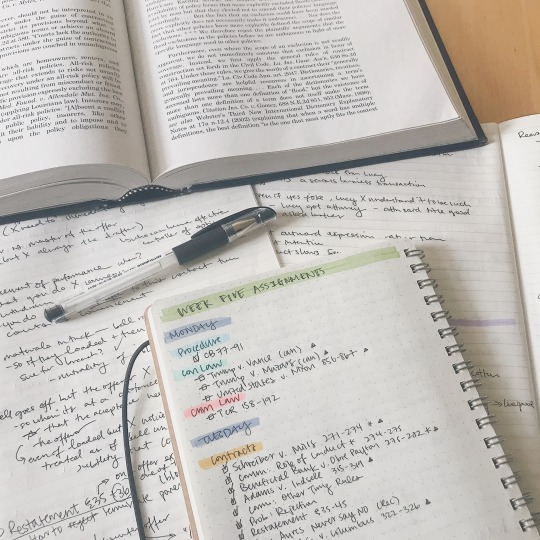
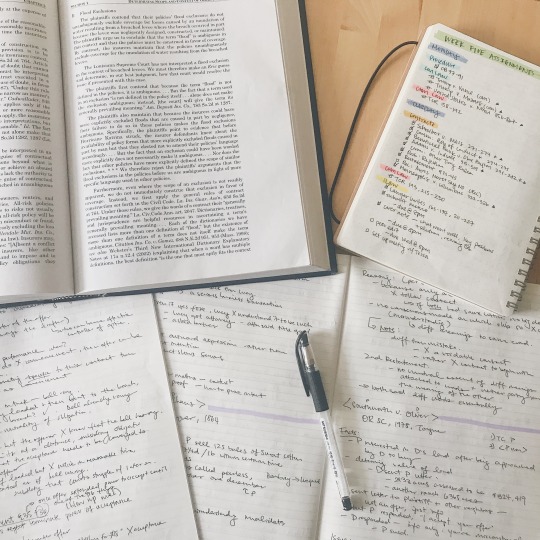
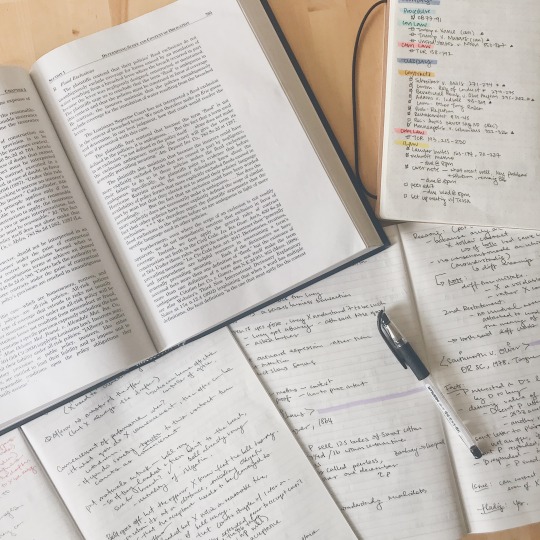
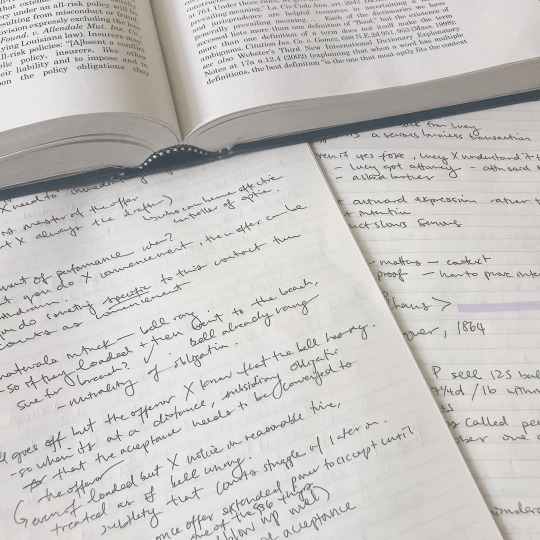
9.22.2020 | How are we doing? I hope you’re hanging in there. I’m trying to. I’m now well into my fifth week of law school and starting to feel less overwhelmed, but it’s still so stressful! But as long as we’re trying our best!
3K notes
·
View notes
Photo
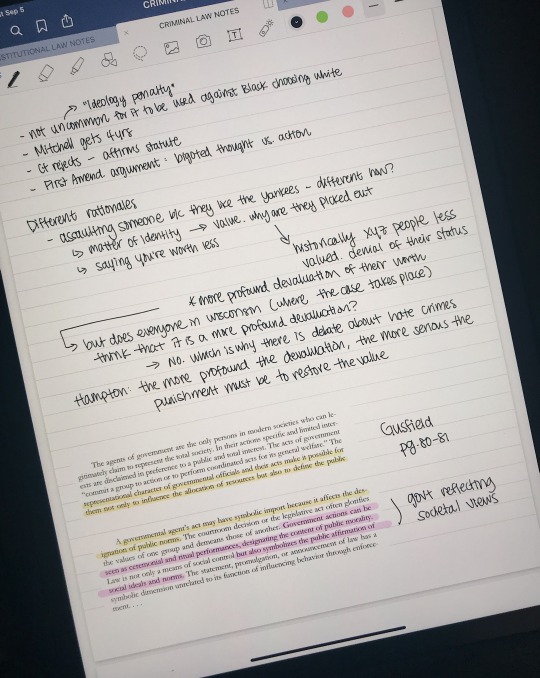
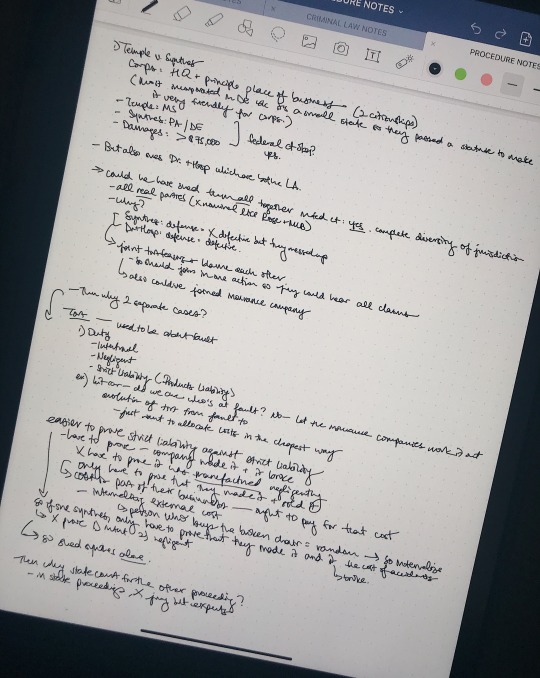
Really loving how big of a difference in handwriting there is between a class where the professor speaks so slowly I get bored and a class where the professor speaks so quickly I can barely catch up 👀
281 notes
·
View notes
Photo
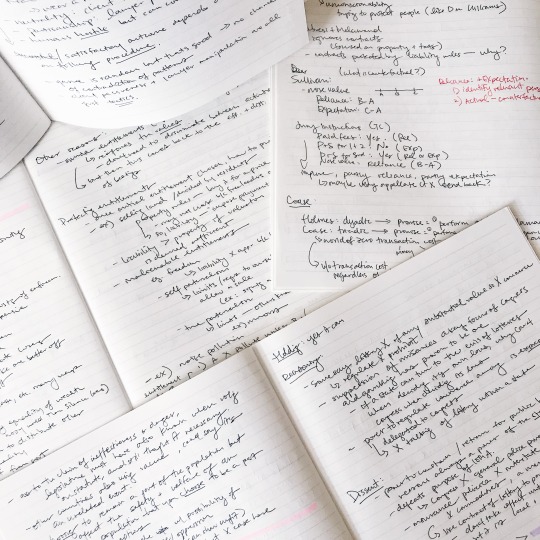
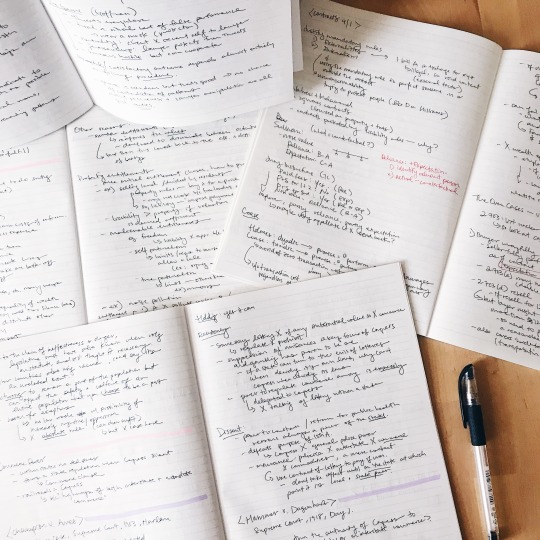
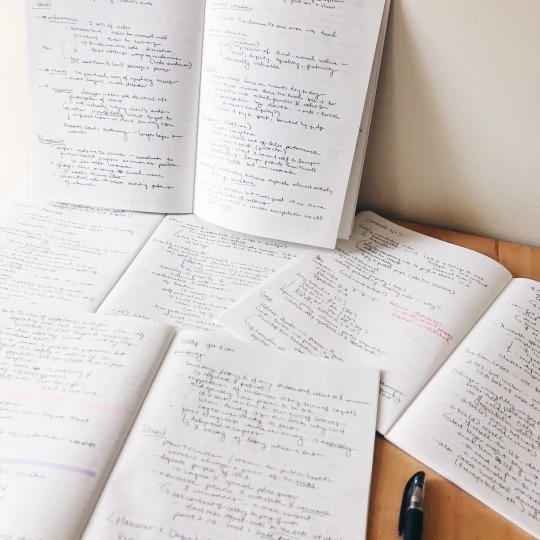
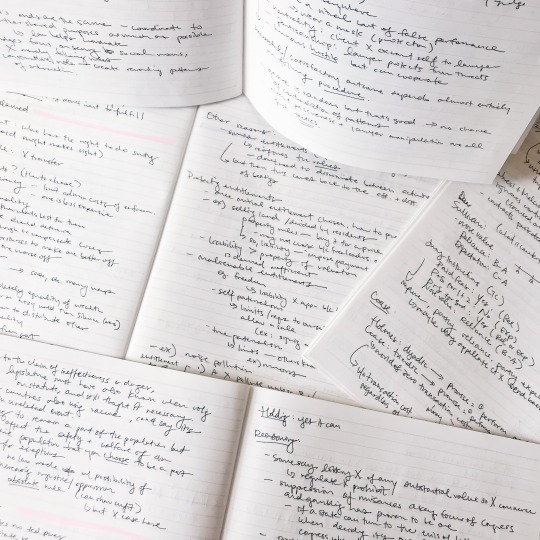
I cannot believe I am only on week two of law school and already halfway through some of my notebooks. Excuse me???
3K notes
·
View notes
Note
hey i was wondering.. i am new to your blog and i was browsing thru and i was wondering where do you find the time to study? i have a full time job (so 8 hrs a day 5 days a week) and i feel like crap when i cant squeeze in my study times. then i see all these langblrs and (yes i know we tend to just show our best selves) but they seem to have time to fit in studying and chores and exercise! like what. do i just suck at being productive?
Hello! First of all, most importantly, no no you do not suck at being productive! Honestly I don’t think there’s such a thing at being good at productivity.. there are definitely tips and tricks on how we can work more efficiently or effectively, but ultimately I don’t think we should ever kick ourselves for not being productive. How productive we can be is always limited by mental, physical, emotional needs that should take priority. And also I think productivity is very much situation-dependent. Like look at me, I dropped off the face of the tumblr planet for three or four months because I had absolutely no content due to a complete lack of space in my mind to do a single thing worth posting.
So right now I’m in law school and that consumes most of my time. Honestly haven’t yet figured out how I can incorporate studying languages into this new mess of a schedule haha. But back when I made those posts you were looking at, here was my situation - I also worked a full time job, but it was not stressful and never extended beyond the 40 hours a week. Because it wasn’t stressful, this meant I went home with a pretty clear mind and had all evening to study or do chores - an undeniable advantage. My weekends were also completely free - another advantage. The pandemic also meant I had a few weeks where I wasn’t even working (yet still getting paid) - another advantage. I was living in the country of the language I was studying, so huge motivation - another advantage. You’re totally right that we tend to show our best selves, but what was supporting that best self was a ton of situational privileges. (Also didn’t exercise so... that’s a lot of extra time haha!)
Anyway, I don’t know how helpful this was, but I guess my point is there are a lot of limits to how “productive” we can be and it’ll be a lot less stressful if we accept that we’re doing our best in the given situation. Also once we stop stressing about not doing all these things like other langblrs, I think studying becomes more fun, cause it’s like that nice hobby we get to do once in a while rather than a second job we’re trying to fit in after an already tiring day. I know I didn’t give you any specific tips, which might have been what you were looking for... definitely ask if you’d like to hear those too but this felt important to me to say. And always here to just vent if you need! ♥
42 notes
·
View notes
Photo
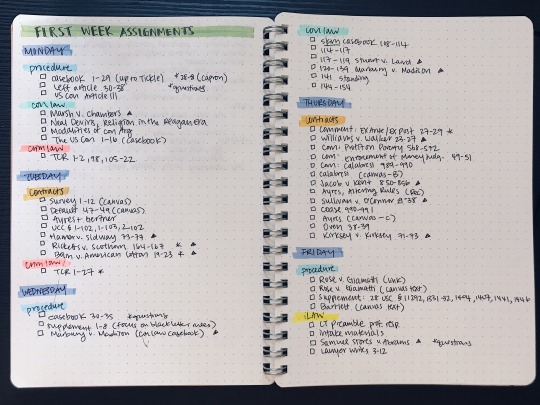

First week of law school complete!
Hello hello! Sorry I’ve been gone for so long... Honestly not much motivation to be productive given everything, but this past Monday I’ve finally started law school! Boy oh boy was it an overwhelming week. Successfully completed all my readings though, so I will take that as a win (although I understood very few of them...). This weekend will definitely be all about catch-up in terms of understanding even though it’s only the first week.
To those who’ve also started (online) school, I hope it’s going well! Online classes are definitely something to get used to, but we’ve got this. (Also thinking of changing my username to something more law related.. any suggestions? My current one is based on a K-Pop song but I do not condone studying all night hahaha)
212 notes
·
View notes
Text

Hello! As finals season (aka 5-research-papers-due-in-a-week season) dawns on many of you, I thought I would share the process I used to write papers in college. This made writing long research papers much less daunting (but can also work on shorter papers). I really hope this helps some of you who feel stuck. Especially during these ridiculous times, when you're stuck at home and might have other uncontrollable factors affecting your mental health, a clear framework of what to do could be helpful. Good luck, my friends! You got this.
About me
I graduated college in 2018 with degrees in Political Science + International Studies and will be starting law school this fall. I wrote nearly 20 15 to 25-page papers, never earning below an A. I loved researching about my topics but hated writing. It's tedious, takes so much time, and everything I write sounds bad at first. Plus, I was a terrible procrastinator so most of these essays were written in under a week. Talk about stress.
Over time I found a process that worked for me, one that made churning out a paper seem straightforward, like going through a factory line rather than this terrifying concept of writing 10,000 words. It kept me sane without decreasing the quality of my work (or more importantly, how much I learned!)
I'm thinking about making a short video to show this in action… let me know if that could be helpful!
Step 1: Research
How you organize your research is a key step in keeping you sane. Usually I'll have a pile of 20 books in my dorm along with dozens of JSTOR tabs open on my laptop, and that can get overwhelming very fast. Right now just focus on collecting ideas, not developing an argument or even an outline! As with most research papers, you could be starting with little to no background information on the topic, so it is still too early to be thinking about an argument.
Put all your research in one document
Open up a new doc: this will be the heart of everything. For a 15-page paper I usually end up with around 14-18 pages of typed research, 10 pt font, single spaced, tiny margins. This seems like a lot, but essentially all I do is type up anything I read that seems relevant to my topic, so luckily this step does not require that much brain power. Just type type type!
Use the table of contents
Find the chapter(s) that are actually relevant instead of skimming through the whole book. Time is of the essence here!
Use Zotero, cite right away
You can also use easybib or whatever you're used to, but keep track of your sources. I like Zotero because I can keep a log of all of my sources and copy the footnote or bibliography version whenever needed. Before you even begin reading, cite the source and copy it into your research doc. This will save you so much time later when you have to put in your citations in the actual paper.
Here is an example of what my research doc looks like:
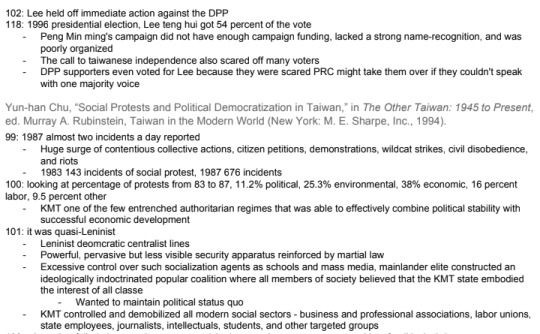
Full citation is my heading for each source just so it’s crystal clear
I ignore all typos (I don’t think there are any in this part though, go me!) because my head is buried in the book just trying to get all the info down
I always start with the page number so I know what to cite when I go back
Create a shorthand
While typing up research, you might think of something that the author didn't talk about that you'll want to write in your paper. Or perhaps a few sentences already start to form. Put them all in one place, with your research, so you know what source you'll have to cite to then lead into your idea. I type "!@#" before anything that is strictly my own idea so I'm never confused. It's fast and stands out.

This is an example: the two bullet points above are evidence from my source, which made me think of this argument I could make, which I noted with “!@#”
Step 2: Read Your Research
Now that you have all your information, go back and read through it all. Every time you read about a new theme/person/event, write it down somewhere. You may come up with a list of 20+ different ideas in your research. No matter how small, as long as there is something about it, write it down. Each of these mini themes is going to end up being a paragraph in your paper or combined with another mini theme.
Once you’ve made your list, look for larger overarching themes. In the paper I’ve shown you, I had mini categories like “political party x” “religion” “labor groups” “little organization” and “hierarchy.” When I looked back I though, hey these are all groups and how groups are working together, so they each became their own mini paragraph under the subsection of “Alliances.”
As with most research paper structures, I try to find three general themes/subsections (like an extended version of that 5-paragraph essay we wrote in middle school). It makes the paper less messy and also makes sure I’m not covering things that are beyond a reasonable scope.
During this step, you are also searching for your thesis. It won’t be your final version. As you fill in your outline in the next step you may make slight changes. But this is definitely when you start thinking about it.
Step 3: Outline
We’re ready to outline! Once I’ve collected all my different themes and organized all my subsections and paragraphs, it’s time to fill in that outline. I start a new doc just for the outline and take advantage of google doc’s headings function to make a clear document outline.
Here comes the fun part, I read through my research one more time, this time copy and pasting all my research into each section of the outline. The document outline in google docs makes this easy because I can just click on each subheading to get me there (super helpful when you’re dealing with 15+ pages of research).
Here is what it looks like:

Let’s say I need to add something to my outline about labor groups. Boom, labor groups. Also, the typos are really abound here haha
Step 4: Write the Paper
Okay, I get it, easier said than done. BUT! You already have everything set up. Your outline is essentially just a list of your paragraphs and all you have to do is paraphrase, cite, and create a topic sentence. And that’s how you should think about this: you’re essentially transforming bullet points into sentences and adding footnotes.
In high school my English teacher introduced us to Sh*tty First Drafts for creative writing, but honestly the same applies to research papers. Sometimes I’ll even have phrases like “wait no that’s not what I meant but basically...” and when I go back to edit, I realize that what came after “but basically...” is fine! And I keep it. So just start typing.
How do you cite while you write? Because we’re trying to get a constant stream of writing going, inserting proper footnotes after each sentence you type is too bothersome. I usually split screen with my outline and my paper so I just copy and paste a few words from my bullet point into my footnote, like so:

(This is from a different paper about cluster munitions.)
Step 5: Edit the Paper
I work best when I print out my first draft and make all edits in red pen. I feel more productive and can visually see where I want to move sentences and what I need to change. The more red there is the better I can feel the paper getting. (Whether or not that’s true doesn’t matter. We’re trying to stay motivated here!) When it’s all digital I don’t really see the progress. Plus, once I finish all the red, I get another moment of passive brain work, where all I’m doing is transferring edits rather than thinking. And at this point in the process, that kind of relief is much welcomed.
The good thing about this process is there’s not usually a need to cut entire paragraphs or pages because the paper you end up with is just a formalized version of your outline. Because you started with such a detailed outline, the cutting and editing now is just to refine your word choices and get rid of the “but basically”s. You’re almost there!
Step 6: Replace your citations
Now it’s time to go back and replace your footnotes with actual citations. Zotero makes this easy because in Word you can just insert and add the page number, and it’ll automatically do “Ibid.” for you when needed. Ctrl+f in the original research doc to quickly find the source.
Step 7: One More Read-Through and Submit!
Congratulations!! You’ve got a fully-researched and well-backed paper! Of course, even though the process is straightforward, it’s still a lot of work. In ideal situations I would start researching two weeks before the deadline, but if need be, I believe I’ve done this all in three miserable panic-filled days as well.
Please message me if you have any questions at all! I really hope some of you find this helpful! Good luck!
#studyblr#college#university#writing#essay#study tips#studytna#original#research#research paper#study#student#school#you can do it!
4K notes
·
View notes
Photo
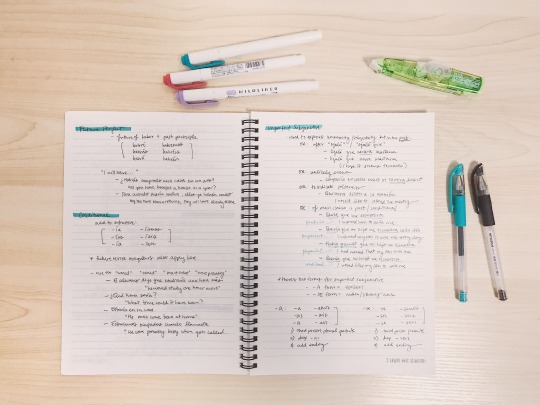
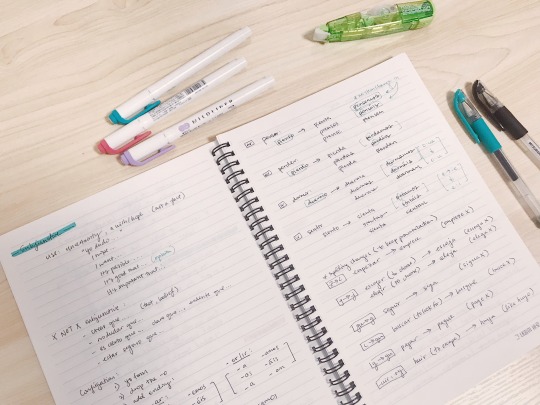
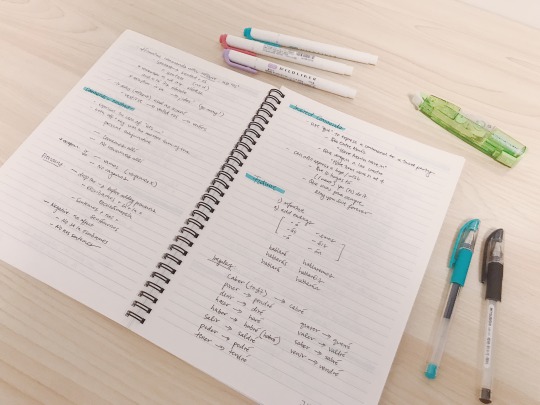
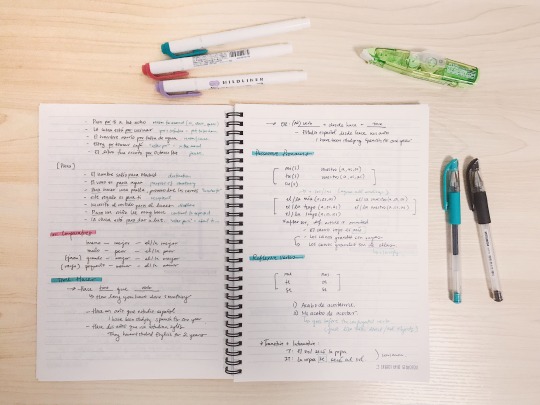
04.12.2020 | Huge language weekend! I reviewed all 9 units of grammar from studyspanish.com, which felt equivalent to all three years of Spanish I took back in high school. Usually I would advise against studying only grammar, but since I’ve learnt this all before, I figured I’d try (re)learning everything first and then just plug and chug vocab later on!
416 notes
·
View notes
Photo

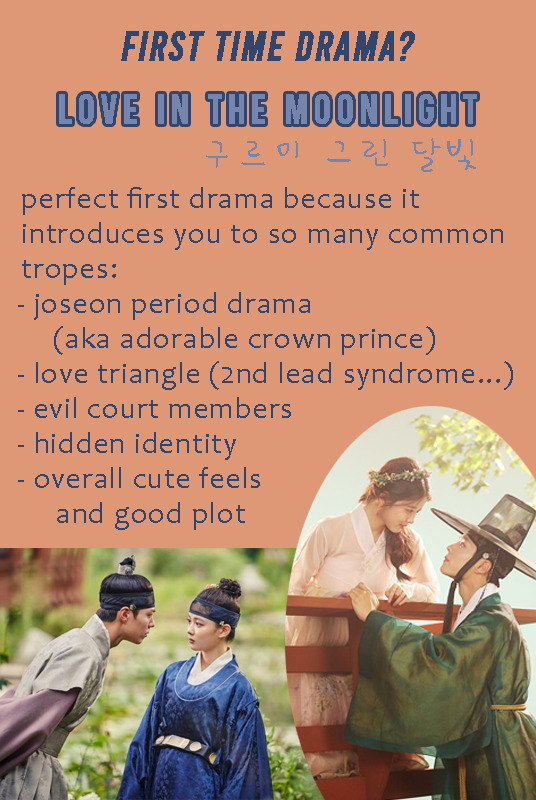

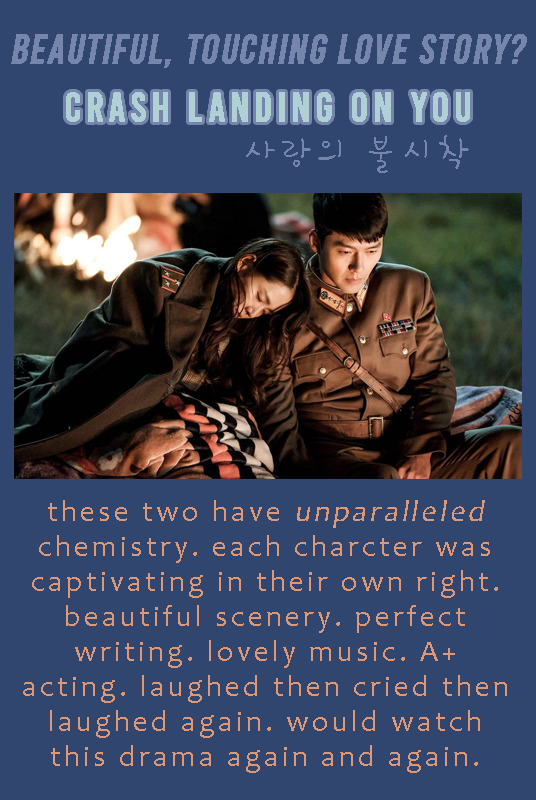
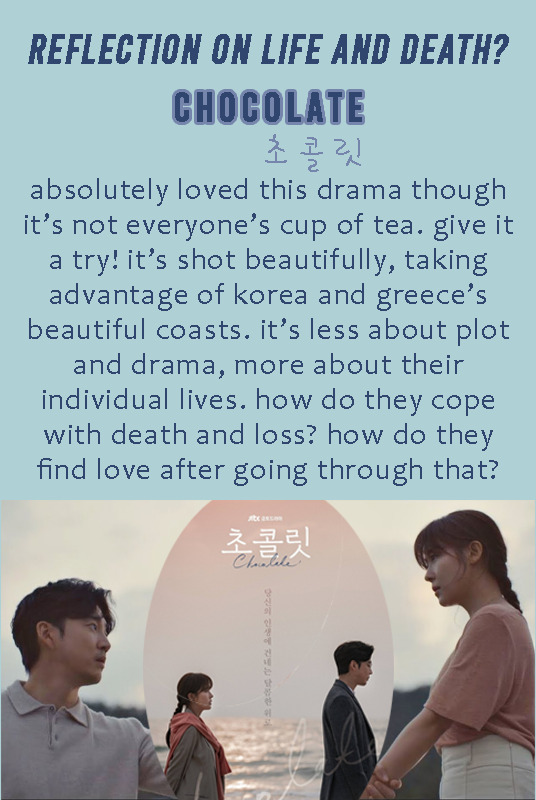
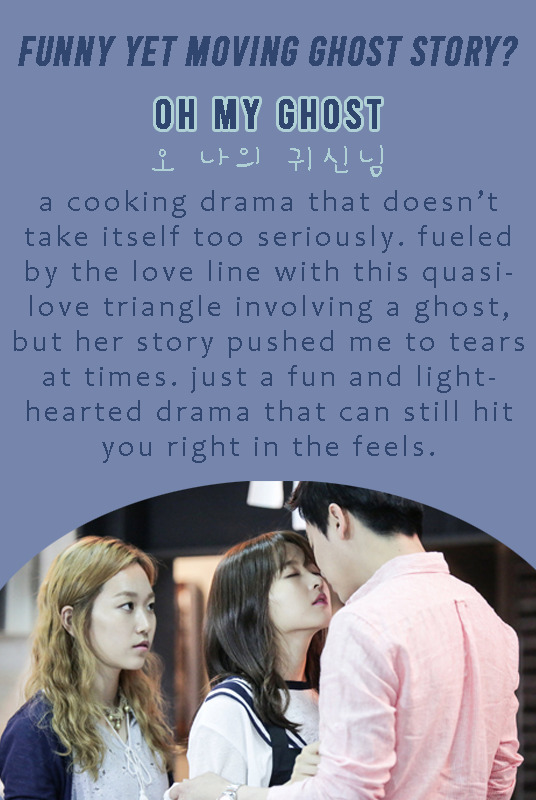



A bit different from my usual content, but here are my top 8 drama recs! While studying Korean, I’ve come to watch a bunch of dramas and wanted to share some for those just starting to learn about the lovely world of Kdramas, or those needing a new rec. I’ve tried to pick ones that fit all different kinds of genres or moods so that there’s something for everyone. Happy watching!
#didn't include plot synopsis because you can find them online! these are just my thoughts on them :)#korean#korean drama#kdrama#studyblr#studytna#original#langblr#wow i'm about to tag all of these let's go!#love in the moonlight#park bo gum#kim yoo jung#dr romantic#romantic doctor teacher kim#han suk kyu#seo hyun jin#crash landing on you#hyun bin#son ye jin#chocolate#ha ji won#oh my ghost#jo jung suk#park bo young#suspicious partner#ji chang wook#nam ji hyun#strong girl do bong soon#do bong soon#park hyung sik
217 notes
·
View notes
Text
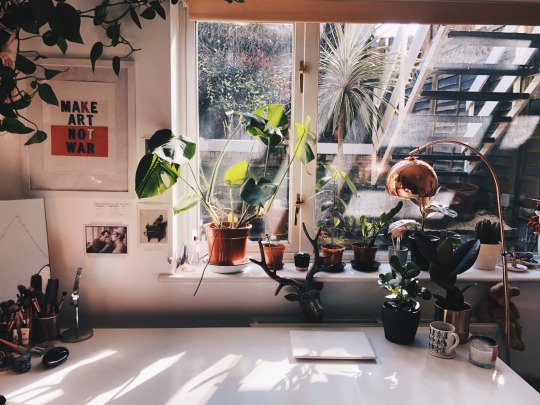

As of today I am officially working from home! I woke up later than I wanted (always the way) but got to spend the morning drinking coffee and basking in the sun on my back porch!! fantastic. Done some work, both school and work work. Went for a walk. Made a fab cheesy omelette. Can’t complain.
5K notes
·
View notes
Photo


03.24.20
Surprise! Today’s post is not about studying Korean. I figured I was probably forgetting all of my Chinese since I haven’t practiced it in a really long time, so I decided to start writing some diary entries every few days to jog my memory about what characters actually look like. My writing has always looked like a child’s but I’m really proud of how it looks now! Hopefully it’ll look more natural as I keep practicing.
#also fyi i'm chinese so i've spoken chinese my whole life but my writing and reading skills are that of a first grader so i want to practice#also traditional script for the win!#studyblr#studyspo#langblr#chinese#chinese language#foreign language#studying#writing#productivity#studytna#original
270 notes
·
View notes
Note
hello! i am really curious onto how you divide your time to learn korean, do you mind sharing your time management? or how much breaks you take for your learning? thank you!!
Great question! So recently because of COVID-19 and schools postponing their start dates in Korea, I’ve had a lot of time. Honestly, I hate having so much time because I feel guilty every minute I’m not doing something... But before, when I worked normal 8-hour days, this is how I’d typically use my time:
8:00 to 5:00: work
5:00 use my phone + eat a snack
5:30 review Anki flashcards
6:30 cook dinner + eat
7:30 watch a drama... then another one....
10:00 suddenly remember that I wanted to study Korean today
11:30 finish studying (I usually choose one big thing to do a day - grammar, writing, vocabulary, etc.)
12:30 sleep after watching another drama
When I study I tend to not take scheduled breaks (ie. the pomodoro method) until my mind feels like it needs it, because once I step out it’s harder for me to step back in. So for example the 1.5 hours I study at night I usually just study straight through. As you can see I’m not by any means someone whose schedule you should be emulating, but I try my best and still get a good bit of studying done!! Trying to fix it this semester though :)
72 notes
·
View notes
Text

Hey y’all! I’ve gotten a few messages asking how I use Anki to study Korean so I thought I’d make a post. I’m by no means an expert but I’ve found a way that works for me that will hopefully help some of you get started!
Things to note:
Got to do it every day
Because it’s so repetitive, whenever I do this in bed I fall asleep. Make it fun, say things out loud, and maybe sit in a chair!
Decks
It’s better not to use too many decks because at that point you’d be attempting to do Anki’s job for it. For example, if you have 10 decks and decide to study one each day, you’re essentially spacing your repetition yourself. Instead, you should study all 10 decks together and have Anki show you the cards that should be reviewed that day.

Shared Decks
I found a deck called “1000 korean simple sentences” online but honestly I’m not really a fan of them because making the cards themselves is part of the learning process. Plus, you’ll never know if there was an unintentional mistake in the cards and end up learning a word incorrectly. However, if you’re in a rush or you just need something to get you started, these are great. Some of them even come with the hanja characters, sample sentences, and audio.
My Decks
Below the shared deck you can see all my decks. I always only study with the main Korean deck. However, I like to make subdecks for each of my textbooks or different ways of studying so I know the source of a word is. Sometimes that context helps me remember a word better and also makes it easier to manage the 1300+ cards.
Settings
Some of this still makes very little sense to me, but for the most part the default settings on Anki will work just fine. Here’s a brief explanation for the four things I think are worth playing around with to find what works for you.

Steps (in minutes): This is how many minutes will pass after the first time you see the word before it graduates to the next level. So the first time you see a new word, you have the option of Hard (1 min), Good (x min), and Easy (4 days). If you press “good”, the word will pop up again in that # of minutes. If you get it right again, it graduates to a review word and you see it less frequently. The default is “1 10″ which means 10 minutes. I changed it to 120 minutes because if I’m studying 100 new words and have to review them each again within 10 minutes, it’ll take forever. This way I can review the words again later on in the day. You can also add as many steps as you want. For example: (1 10 120 480) means that you will have to mark a card as “good” four times before it becomes a review card, once as a new card, again in 10 minutes, then 2 hours, then 8 hours. *Note: don’t freak out and add too many steps because if you get the word wrong after it becomes a review word, you’ll go through the steps again!
New cards/day: I just put 9999 because I want to be able to see every new card I add to my deck the day that I add it
Graduating interval: Once you finish the steps (see #1), this is number of days before you’ll see the card again as a review card. Some people like to increase the number of days, but I think for vocab 1 day is perfectly fine. I tend to forget words that I learn by the next day anyway, so any longer of a gap might be counterproductive.
Easy interval: If you mark a card as “easy”, it’ll come up again in this number of days. I suggest you not mark cards as easy unless you really know them because more review is always better. I accidentally marked cards as “easy” way too often when I first started, and now I realized that I have cards that won’t be reviewed for 2.6 years?!? Oops. So stick to marking cards as good or hard until you feel you could delete that card from your deck and be fine.
So What’s on the Cards?
For most cards, I just do Korean on one side (dictionary form) and English on the other. It doesn’t matter which one is which because you can choose which side of the card you see first. I always see the English first and think of the Korean. But there’s other things you can include! Definitely customize for each word. You don’t need to include everything for every card if you don’t need it.

[ ] is for those tricky 받침 changes that often changes the pronunciation.
( ) is for the conjugations that I struggle to remember. Sometimes irregular verbs, sometimes just verbs that look strange.

There are also often words that I wouldn’t know how to use in conversation if I just see on a flashcard, so for those I include one or two examples. On the left is an example of a word that doesn’t really make sense to me when I just look at the English - left undone? delayed? But the example sentences clear things up. On the right is a word whose meaning is clear but not the usage.
Final Thoughts
I really hope this helps some of you! The key is just to use Anki every day to best take advantage of its system. If you have any questions, please message me! If you’d just like a study buddy, also message me :) Happy studying!
#studyblr#studytna#original#study tips#langblr#korean#korean language#studying korean#anki#vocabulary#flashcards#foreign language#한국어
168 notes
·
View notes
Note
i hope you’re staying safe :(( the virus is spreading so fast
thank you, you too! Wherever you are, I hope you still have access to all the resources you need. Here in Korea there is very little panic buying so our stores are still stocked with necessities. Stay safe and healthy my friend!!
23 notes
·
View notes
Photo
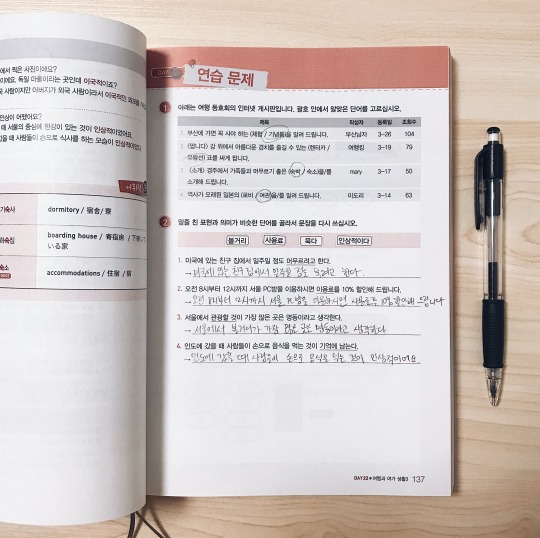
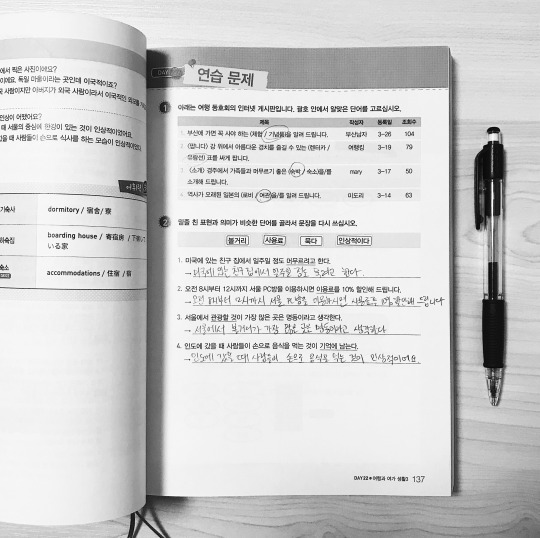
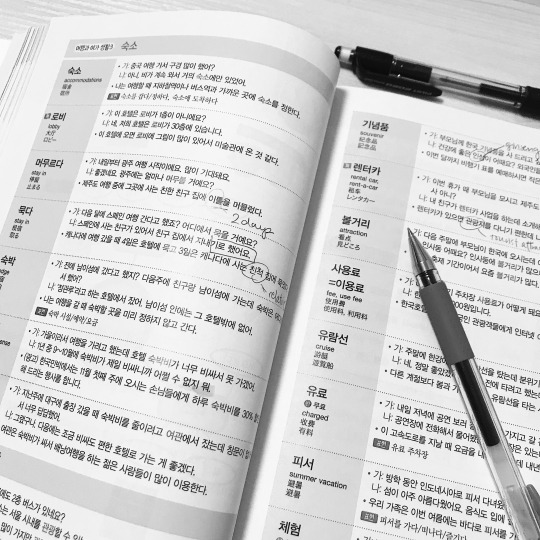
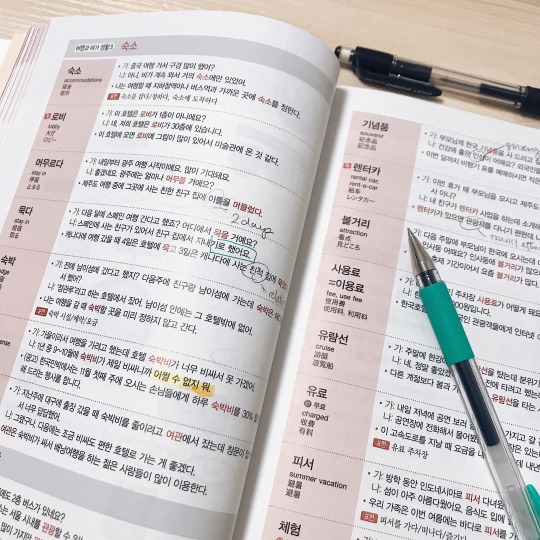
02.29.2020 | 7 Day Korean Challenge: Day 7/7
I’ve reached the end! I’ve studied Korean for 6+ hours every day for an entire week and you know, they’re not kidding when they say that to get better at a language you have to practice every day. I hope this has started a habit that I can keep maintaining once the school semester starts again, even if just for a few minutes a day. Here’s a recap of what I’ve been able to accomplish this week:
Hours studied: 50
New words learned: 729
Current Anki Korean deck: 1,342 cards
Really insanely proud of myself. I have work tomorrow where I’ll meet a bunch of new Korean coworkers for the first time. 한국어로 대화를 할 수 있을까요? 모르겠지만 내일에 대해 생각하면 신나고 좀 긴장해요. 로렌 화이팅!
#studyblr#langblr#korean#korean language#foreign language#studying#한국어#productivity#studyspiration#studyspo#studytna#original
393 notes
·
View notes
Photo
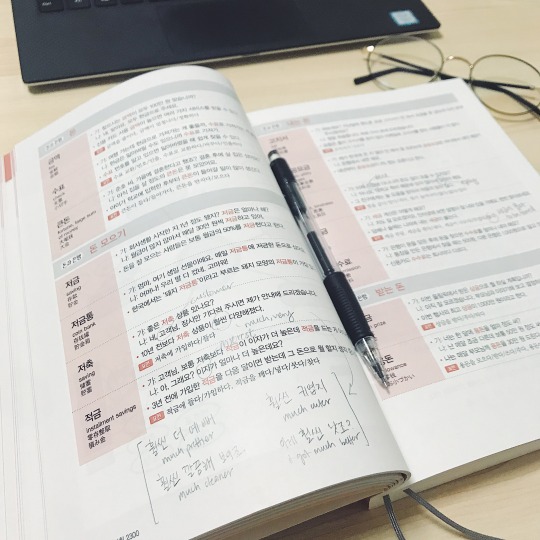
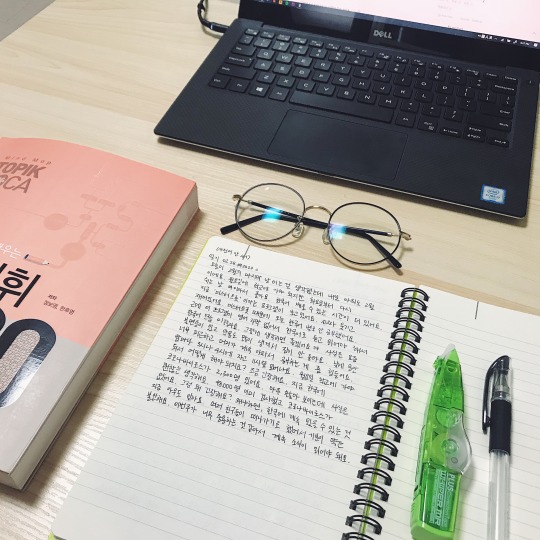
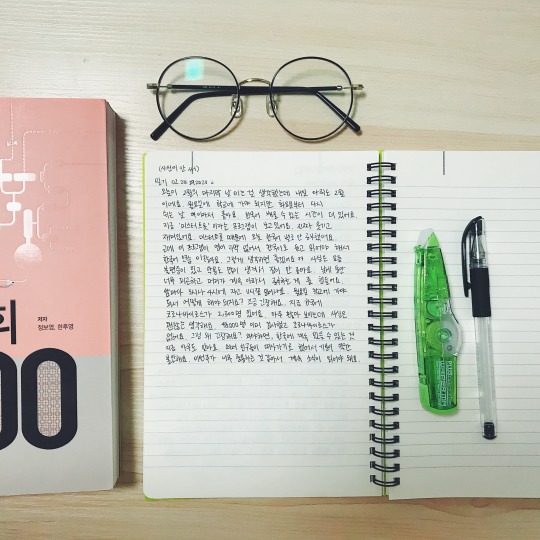
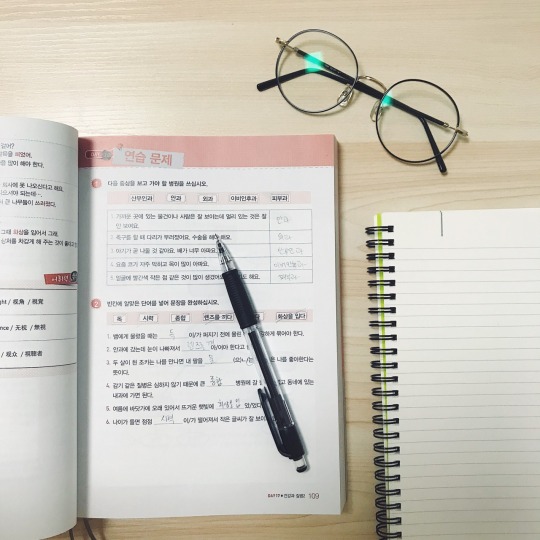
02.28.2020 | 7 Day Korean Challenge: Day 6/7
Studied a ton of Korean today! Really happy with my progress. Granted I still can’t really speak that well but the amount my vocabulary has expanded this week makes me super happy. Tomorrow’s the last day before I have to start prepping for the new semester instead of studying all day but I’m happy with how much I got done this week :)
Hours studied: 8
New words learned: ~150
Words reviewed: ~700 (my Anki deck is around 1,000 cards now)
#studyblr#langblr#korean language#korean#studying#foreign language#studytna#original#flatlay#productivity#studyspo
501 notes
·
View notes
Text

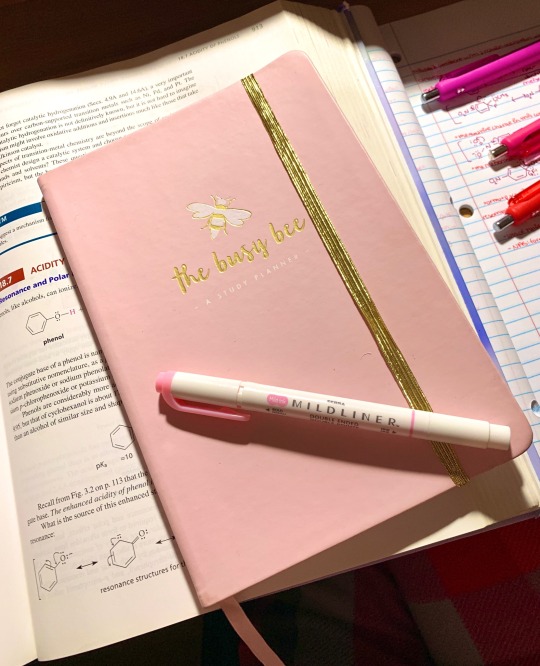
sometimes the sun really does come out after the rain.....got a whole bunch of chemistry and statistics done today, and now my blankets are in the washer and it’s time for a workout until they’re dry. gotta say nothing feels better than a quiet day of productivity after a stressful week 💕 im willing that calm good energy into the universe for all of you
123 notes
·
View notes